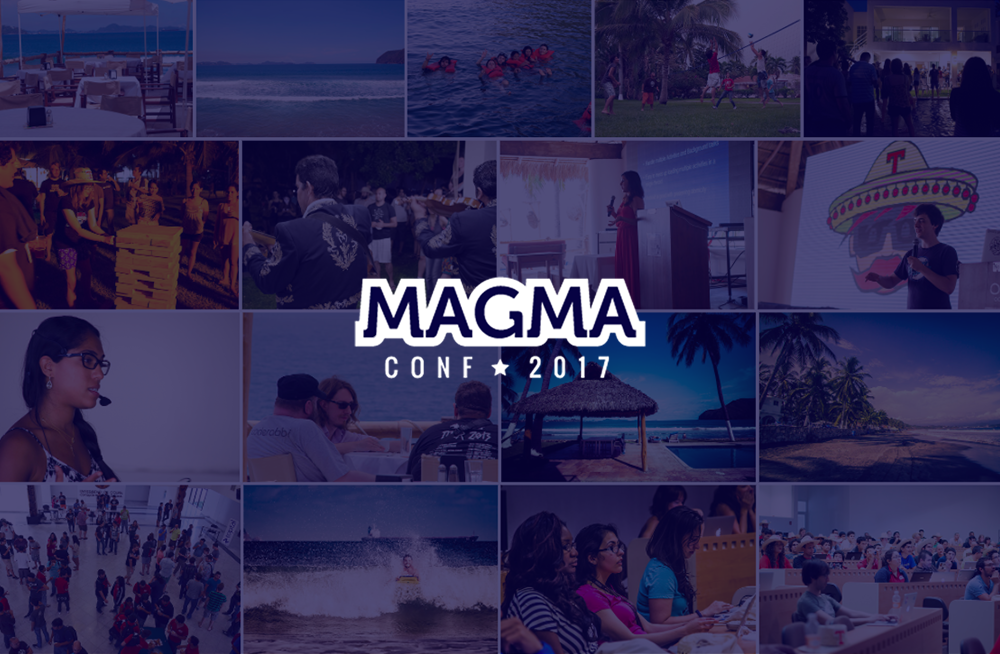Earlier this month I had the pleasure of attending Fluent Conf 2014. My expectations were high, as it was my first conference out of Mexico. With O’Reilly as the organizer, legendary developers like Paul Irish and Yehuda Katz present, in the beautiful city of San Francisco, among the friendliest dev community in the US, you could tell that my expectations were clearly high.

Day One: Workshops
I had the opportunity to attend 4 amazing workshops. But I don’t want to make this post really long, instead I will talk about the ones that changed my way of thinking and working, starting with my very first workshop, with Kitt Hodsden. Kitt showed us how to improve the way we work, she talked about making our frontend workflow awesome and magical. She focuses on the DRY principle, making the changes easily, finding mistakes sooner. The workshop was short but rich in content. It was a good start, I learned a lot from her. After it was over, I was looking forward to the following workshop. So, next came a security workshop with Sasha Goldshtein. I was very curious about this topic. As a Rails developer I learned about a few security concerns, although I had thought it wouldn’t be an exciting topic. So he started speaking and explaining security concepts and techniques. He also mentioned who should worry about security. The answer was: everyone. He showed us how easy it was to intercept the conference’s Wifi connection and listen to our traffic. That was shocking and awesome at the same time. It caught my attention immediately. Sasha continued showing us the common vulnerabilities an application can have based on the OWASP top ten vulnerabilities, and got deeper and deeper into the topic. This was done in a live demonstration, he showed us these breaches at work. After one and a half hours of amazing content, I ended up with a different way of thinking, I realized I didn’t know as much as I thought about the issue. I’m thankful with Sasha for sharing this knowledge, he opened that new window for me to explore. So that is how my first day ended, setting the bar high for the next day.

Day Two: Conferences
A new day, and more concepts and tips to learn. It was amazing to see a hall full of developers, I didn’t notice how big the conference was until the moment for the keynotes came, and I saw the rooms full of people, some of them were even standing outside the room just to get a chance to listen to the talks! It was a cool atmosphere, I was very excited. Brendan Eich started his talk mentioning all of the new stuff coming for Javascript. And then, it was Scott Hanselman’s turn. I have to confess that I thought to myself: “What should I expect from a a Microsoft guy?”. Well, I was surprised. It was my favorite keynote speech from the conference. It was fresh, funny and interesting. He talked about Azure, how it works, all the effort they have made to make things easier for developers. He referred to the problems Microsoft had to face to make Azure what it is today, all told in the style of a story. Scott and Ilya Grigorik caught my attention when they referred to speed and performance. The cool thing was that they did not only mention numbers and complicated concepts, they also considered “Human Perception”, and the factors that make an user feel that the page is faster or slower, even when there’s no real difference. Perception and experience truly go a long way.
I was really happy on this second day. I had learned a lot of new things and it was only beginning. I attended a couple of presentations, one of them by Kyle Simpson, that had an awful title (Where’s My Straw?) for his conference but the content was really good. And another by Elijah Manor, who reminded me of why I like to use jQuery, even when nobody wants to use. In my case, it is not because of page speed or performance, it is because of its simplicity and incredible browser support.
Day Three: because every good thing has to come to an end.
Last day, and the conference never stopped surprising me. The keynotes were awesome, Paul Irish talked about Chrome dev tools, and showed us some cool tips and what is coming next. Then, I heard about Khan Academy from Susan McGregor, who caught my attention, definitely something I need to check, and you should check it too. Also, the guys at DOMO gave a really great talk, they talked about one of the best things about of Javascript, its community. I totally agree, and I experienced it in San Francisco. Finally, Yehuda Katz explained Ember.js, what it is and why it is different to the rest, making it even more difficult for me to decide on what Javascript framework I should specialize.
I attended even more great presentations. I got to reconsider email and its conversion rates thanks to Lee Mallabone, who showed us how to add more functionality to emails. She showed things I didn’t know where even possible, like adding dynamic content. The following presentation was about the cool stuff coming on Sass 3.3, from the voice of its creator, Chris Eppstein. I also noticed the existence of some amazing functionalities that are already there, like source maps. Finally, another excellent presentation from Lara Swanson, more concepts and ways to make your page faster, and what’s the impact of a slow page has in your conversion rates, she suggested useful ways to optimize your page.
But I was a bit upset at the end, because although I had the chance to listen to exceptional speeches, cool content, and learn a lot things, I couldn’t find an answer for the question I had in mind before getting to the San Francisco: “Which Javascript framework should I specialize on?” I think that I now want to learn all of them, and hopefully, work on a big project with each one of them, to learn their limits. But in the meanwhile, I want to focus on just one. And then, I heard Burke Holland speak. I loved his presentation, the way he explained Angular and its benefits. And of course, his arguments in favor of Angular over the rest of the frameworks was enlightening. I thank him for showing me a face of Angular I hadn’t seen before his talk.
And of course there were wonderful drink-ups, courtesy of Facebook and O’Reilly. But they still have a long way to go before they can be better than the ones we have at MagmaConf ;).
Finally
The conference ended, and I was tired, too many things to try and test in my near future. So, in summary, it was hard to absorb all of that knowledge in just a few days, but I’m glad I was there. I had the chance of talking to very talented developers among the attendees, and those interactions added value to the whole experience. I got a lot of tips and experiences I won’t forget easily. You definitely need to be there next year. I thank Kitt, Sasha and Burke and the FluentConf staff for everything. See you next year!
If you couldn’t go to the conference you can see the keynotes here.
Thanks for reading!



